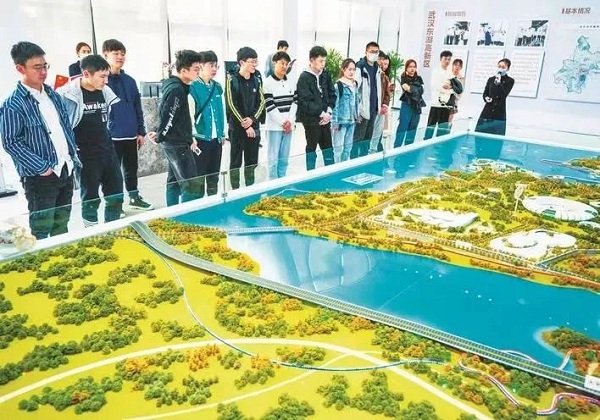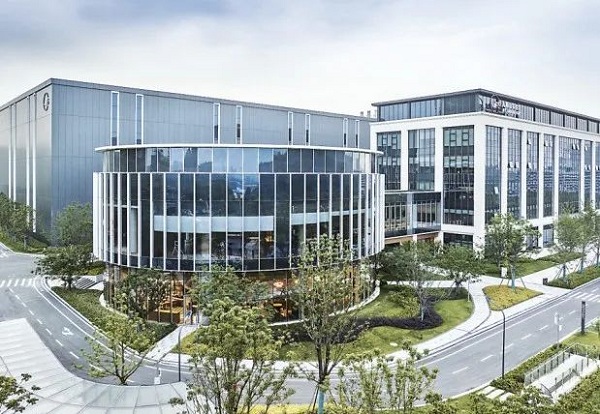Optics Valley emerges as key player in new city development

College students visit the Wuhan New City exhibition hall in Optics Valley of China. [Photo/WeChat account of Optics Valley of China]
The Wuhan metropolitan area development master plan was officially approved by the central government in December 2022, stipulating that about 74.3 percent of the East Lake High-tech Development Zone (also known as Optics Valley of China, or OVC) will be included as part of the Wuhan New City and account for more than half of the new city's total area, making the valley a key player in the new city's development.
Boasting 59 percent of Wuhan's invention patents and 80.1 percent of the city's international patent applications (PCT), the Optics Valley of China has been home to four Nobel Prize winners, 74 overseas and domestic academicians, and 3,447 talents selected as part of the "3551 Talent Programs". More than 80 percent of State-level and provincial high-end personnel recommended by enterprises are based in OVC. Over the past six years, OVC has retained about 660,000 graduates, and workers' average age is 32.

Jiufeng Mountain Lab. [Photo/WeChat account of Optics Valley of China]
Led by the valley, the optoelectronic information industry of the Optics Valley Sci-tech Innovation Corridor spanning Wuhan, Ezhou, Huangshi and Huanggang is currently thriving, with its annual output value being nearly 800 billion yuan ($111.44 billion).
The master plan emphasizes sustainable, human-centered concepts, and calls for intelligent governance to make the Wuhan New City a place where humans and nature coexist and that features industry-city integration.
Surrounded by 58 mountains and a dozen lakes and rivers, the Wuhan New City will be filled with vegetation and green spaces. "Only a world-class living environment and world-class obstacles to tackle can attract top talent," said Li Guang, vice chairman of the Chinese Association of Science of Science and S&T Policy Research.


